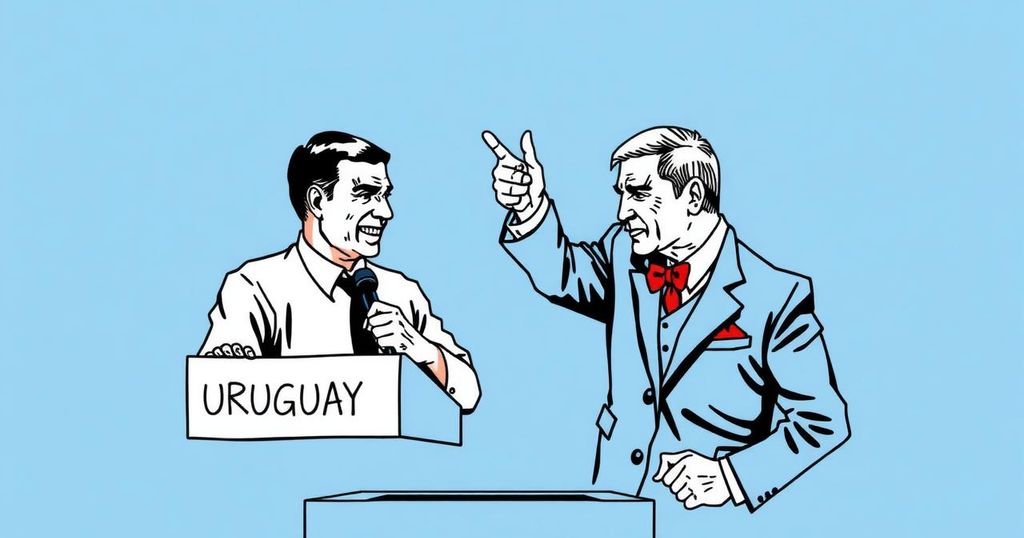Uruguay’s presidential runoff features Yamandu Orsi and Alvaro Delgado in a tightly contested race, with polls suggesting fewer than 25,000 votes may separate the candidates. The election reflects the nation’s stable political environment and a struggle to attract undecided voters amidst economic concerns. Both candidates must navigate the political landscape shaped by this year’s broader electoral movements across the globe.
Uruguay’s presidential runoff election, set for Sunday, pits opposition center-left candidate Yamandu Orsi against continuity conservative candidate Alvaro Delgado. This election is notable for its relatively low political tension in contrast to other South American nations, with final opinion polls indicating the race may be extremely close, potentially decided by fewer than 25,000 votes. The election comes after a significant year for political shifts in the region, raising questions about whether the current government will maintain its standing amidst a backdrop of global pushback against incumbent parties.
Voters in Uruguay will cast their ballots at designated times over the course of Sunday, with early results anticipated shortly after polls close. Orsi, having garnered 43.9% of the votes in the initial round, advocates for a “modern left” approach, while Delgado received 26.8% and aims to extend the current administration’s policies, confident in the popularity of President Luis Lacalle Pou. Both candidates are motivated to appeal to undecided voters and those aligned with smaller parties from the first round.
Given the absence of an absolute majority from either coalition in the lower house following the last elections, the candidates are vying for the support of unaligned voters. This strategy will be crucial, especially in light of dissatisfaction stemming from inflation and living costs worldwide. Analysts suggest that Uruguay’s stable economy may prevent voters from demanding significant political transformations this election cycle.
The outcome of this runoff may either conform to or defy the global trend of declining support for incumbent parties. As Uruguay heads into this critical electoral decision, many are watching to see how the nation will respond to economic pressures and its established political norms.
Uruguay is a small South American nation known for its political stability and progressive social policies. With a population of approximately 3.4 million, it has a unique electoral landscape characterized by less polarizing political tensions compared to other countries in the region like Argentina and Brazil. Recently, the nation witnessed significant electoral activities culminating in this presidential runoff— a critical moment that could either reinforce or challenge the current political status quo amidst changing economic conditions.
The upcoming presidential runoff in Uruguay represents a crucial decision point for its electorate, as both candidates, Yamandu Orsi and Alvaro Delgado, strive to secure the support of undecided voters and those disillusioned with smaller parties. The tight race highlights the evolving political dynamics in Uruguay, which could either continue its trend of stable governance or reflect the global electoral shift favoring change amidst economic discontent. The final results will indicate whether voters seek continuity or a new direction in leadership.
Original Source: www.arabnews.com






